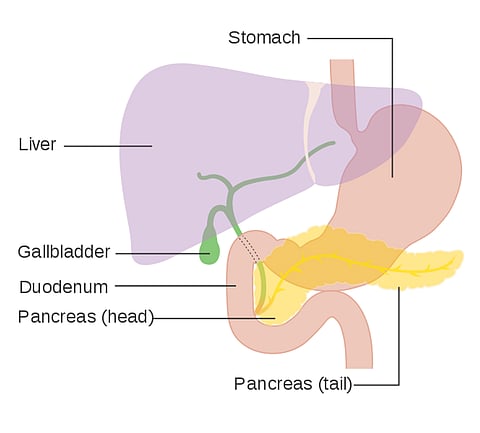
- Home
- न्यूजग्राम
- India
- World
- Politics
- Entertainment
- Culture
- Lifestyle
- Economy
- Sports
- Sp. Coverage
- Misc.
- NewsGram Exclusive
- Jobs / Internships

Researchers have uncovered a potential new way to target pancreatic tumors that express high intratumoral interferon signaling (IFN). The team found that high type I IFN signaling is present in a subset of pancreatic tumors and it triggers a decrease in the level of nicotinamide adenine dinucleotide (NAD) and nicotinamide adenine dinucleotide hydrogen (NADH) in pancreatic cancer cells, which are vital cofactors in critical metabolic processes.
"This is a study that identifies a potential vulnerability created by type I IFNs in pancreatic cancer that can be leveraged for what appears to be an effective therapeutic strategy," said researcher Timothy Donahue from the University of California – Los Angeles, in a mice-based study.
Follow NewsGram on LinkedIn to know what's happening around the world.
After the researchers delineated the mechanism by which the NAD depletion occurs, they demonstrated that cells with high IFN signaling were more sensitive to Nicotinamide phosphoribosyltransferase (NAMPT) inhibitors, which inhibit a major pathway in NAD synthesis.
Pancreatic tumor cells. Flickr
Based on this mechanism, recently developed second-generation NAMPT inhibitors could potentially be used in combination with new systemic drugs, called STING agonists, which increase type I IFN signaling, according to a paper published in the Proceedings of the National Academy of Sciences.
When tested in mice, the combination of IFN signaling and NAMPT inhibitors not only decreased pancreatic tumor growth but also resulted in fewer liver metastases.
"With the advent of these two new and improved therapeutics, our findings are timely as their combination may sensitize tumors to NAD depletion," said lead author Alexandra Moore from the varsity.
The findings provide evidence that if tumors with high IFN signaling can be identified, or if IFN signaling can be amplified in tumor cells, those tumors may have greater sensitivity to treatment with NAMPT inhibitors. If so, the combination could potentially help improve the prognosis for one of the most difficult cancers to treat, the team said. (IANS)
